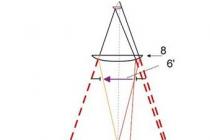part-time work
Irregular working hours
The employer has the right, if necessary, to occasionally involve employees in work outside the established working hours for them. For example, to establish an irregular working day for them * (Article 101 of the Tax Code of the Russian Federation).
* Exception: employees aged 14 to 18 years (paragraph 2, 3 part 1 of article 94 of the Labor Code of the Russian Federation), disabled people. For them, duration daily work established in accordance with a medical report (paragraph 4, part 1, article 94 of the Labor Code of the Russian Federation), workers employed in work with harmful, dangerous working conditions (part 2, article 94 of the Labor Code of the Russian Federation).
It is also possible to establish an irregular working day for an employee with part-time work (letter of Rostrud dated 19.04.2010 No. 1073-6-1). However, from June 29, 2017 - only if a part-time working week is established for him, but with a full working day (part 2 of article 101 of the Labor Code of the Russian Federation).
As compensation, an employee with an irregular working day is provided with annual additional paid leave. The duration of the vacation is determined by the collective agreement or the rules of the internal work schedule and cannot be less than three calendar days(part 1 of article 119 of the Labor Code of the Russian Federation).
EXAMPLE 2 PAYMENT FOR IRREGULAR WORKING TIME
A part-time work week is set for a marketer - four days of eight hours (32 hours a week) with a five-day (40-hour) established in the organization working week.
This employee can be set an irregular working day, as he works part-time, but with a full working day - eight hours.
Working overtime and weekends
Overtime work is another option for working outside the working hours established for an employee, namely (part 1 of article 99 of the Labor Code of the Russian Federation):
- over the duration of daily work (shift);
- in excess of the normal number of working hours for the accounting period - with the summarized accounting of working hours.
Overtime work may not be:
- pregnant women (part 5 of article 99 of the Labor Code of the Russian Federation);
- employees under the age of 18, with the exception of persons specified in article 268 of the Labor Code of the Russian Federation (creative workers) and in part 3 of article 348.8 of the Labor Code of the Russian Federation (athletes);
- employees with whom a student agreement has been concluded and is in effect (part 3 of article 203 of the Labor Code of the Russian Federation).
In addition, there are restrictions on engaging in overtime work for medical reasons.
In any case, the involvement of employees to work outside the working hours established for them should not be systematic, but occur from time to time (sporadically) and in certain situations (letter of Rostrud dated 07.06.2008 No. 1316-6-1). In particular, the duration overtime should not exceed four hours for each employee for two consecutive days and 120 hours per year (part 6 of article 99 of the Labor Code of the Russian Federation).
Compensation for overtime work is (part 1 of article 152 of the Labor Code of the Russian Federation):
- or increased wages - for the first two hours of work at least one and a half times, for the third and subsequent hours - at least twice the amount;
- or providing additional rest time, but not less than the time worked overtime.
The procedure for calculating the hourly rate from the monthly salary must be fixed in a collective agreement, agreement or local regulatory act (letter of the Ministry of Health of Russia dated 02.07.2014 No. 16-4 / 2059436).
EXAMPLE 3 PAYMENT FOR OVERTIME
The head of the sales department with a monthly salary of 59,190 rubles on 06/05/2017 worked three hours of overtime, which was paid at an increased rate: for the first two hours at one and a half times, for the third hour - at double.
The norm of working hours in 2017 according to production calendar is 1973 hours.
This means that the employee's hourly rate is 360 rubles (59,190 rubles: (1,973 hours: 12 months)). He was paid 1,800 rubles for overtime work (360 rubles/hour × 2 hours × 1.5 + 360 rubles/hour × 1 hour × 2).
Provided that the employee is a citizen and tax resident of the Russian Federation, the accountant will make the following entries:
DEBIT 44 CREDIT 70
- 1800 rub. - increased wages for overtime work;
DEBIT 44 CREDIT 69
- 543.60 rubles. (1800 × (26% + 2.9% + 5.1% + 0.2%)) - insurance premiums are accrued;
DEBIT 70 CREDIT 68 sub-account "Calculations for personal income tax"
- 234 rubles. (1800 × 13%) - personal income tax withheld;
DEBIT 70 CREDIT 51 (50)
- 1566 rubles. (1800 - 234) - increased wages were paid for overtime work.
Document we are talking on overtime work on weekends and non-working holidays (part 3 of article 152 of the Labor Code of the Russian Federation). Such work should not be paid as overtime if the employee received compensation for it as for work on a weekend or holiday (part 1 of article 153 of the Labor Code of the Russian Federation):
- or in the form of higher wages;
- or providing another day of rest.
Work on a weekend or holiday is paid:
- pieceworkers - at least at double piecework rates;
- for daily and hourly wages tariff rates, - not less than at the double tariff rate;
- employees receiving a salary - in the amount of at least a single daily rate ** or an hourly rate *** in excess of the salary, if work on a weekend or holiday was carried out within the monthly norm of working hours. Otherwise, the work is paid at least twice the daily or hourly rate in excess of the salary.
** Part of the salary for the day of work.
*** Part of the salary per hour of work.
On June 18, 2017, Russian President Vladimir Putin signed amendments to the Labor Code introduced by Law No. 125-FZ, and on July 1, 2017, by Law No. 139-FZ. Innovations touched upon various issues: the establishment and payment of part-time work, the procedure for payment for irregular, overtime work, work on weekends and holidays, labor activity of minors. Learn more about the changes in Labor Code in June 2017, read our article.
Part-time work and amendments to the Labor Code: June 2017
The establishment of part-time work by agreement of the parties is provided for by Art. 93 of the Labor Code of the Russian Federation. If earlier it was only part-time, shift, work week, now, thanks to the latest amendments to the Labor Code of the Russian Federation, it became possible to divide the working day into parts. This means that the employee can ask not only to reduce the working day, but also to work, for example, for 2 hours in the morning and in the evening. Partial hours can be set to limited time or indefinitely, by agreement of the parties.
The employer has the right to apply partial schedule work to any employee, but at the request of certain categories of employees, he is obliged to do this. This applies to pregnant women, the parent (guardian) of a child under 14, or a disabled child under 18, and a person caring for a sick family member. Last changes in the Labor Code of the Russian Federation of 2017, the following restriction was introduced: the use of part-time work has a period convenient for the employee, but lasts no longer than the circumstances that caused it. Taking into account the wishes of the employee and working conditions, the mode of work and rest, the time of the beginning, end of work, breaks in it are set. For example, an employee may ask to postpone the start of the working day an hour later, and the lunch break may also be later for him.
Amendments to the Labor Code 2017 on processing
With an irregular schedule, it is assumed that an employee is involved in work outside of his working hours. Positions that allow such “irregularity” are established by local regulations. The Law on Amendments to the Labor Code No. 125-FZ specifies the conditions under which an irregular day can be applied to part-time work: if, by agreement of the parties, the employee works part-time, but full-time (part 2 of article 101 of the Labor Code of the Russian Federation). Given the amendments made, the Labor Code of the Russian Federation of 2017 prohibits the application of “irregularity” to those who work part-time.
Breaks for meals and rest: amendments to the Labor Code - 2017
Article 108 of the Labor Code of the Russian Federation includes a not very pleasant innovation for those whose working day lasts up to 4 hours. By general rule the lunch break of workers can last from 30 minutes to 2 hours without being included in work time. Now, according to the changes in the Labor Code of 2017, the employer can indicate in the employment contract or internal rules of the order that such breaks are not provided to those who work less than 4 hours a day.
Amendments to the Labor Code - 2017 on wages
The June amendments to the Labor Code affected overtime pay and work on "non-working" holidays and weekends.
Overtime work is carried out outside the working hours established for the employee. The payment for such work is increased: one and a half times for the first 2 hours, and double for subsequent overtime hours. Increased pay can be replaced by additional rest, commensurate with the hours worked overtime, if the employee wishes (Article 152 of the Labor Code of the Russian Federation).
Amendments to Article 152 of the Labor Code introduce the following clarification: overtime work on weekends and holidays, paid in accordance with Art. 153 of the Labor Code of the Russian Federation, is not taken into account when determining overtime work on working days. That is, the provisions of Art. 152 of the Labor Code apply only to overtime work on weekdays, and for weekends and non-working holidays, Art. 153 of the Labor Code of the Russian Federation.
Recall that work on weekends and holidays is paid in accordance with Art. 153 of the Labor Code of the Russian Federation in double size or in single size, but then an unpaid additional day of rest should be provided. New amendments to the Labor Code also affected this norm. Now, if part of the working day or shift falls on a weekend or holiday, the increased payment goes only for the hours actually worked on the weekend or holiday. The time difference between working and non-working days from 00 to 24 hours is specified. For example, a shift starts on the eve of a holiday at 21:00 and ends at 9:00 on a holiday: double the amount of payment will be made from 00:00, when the holiday began.
Labor Code of the Russian Federation 2017: changes on the labor of minors
In this part, the law of July 1, 2017 No. 139-FZ made the following amendments:
- The consent of the parent and the guardianship authority to conclude an employment contract with a person who has reached the age of 14 should now be given only in writing(Article 63 of the Labor Code of the Russian Federation);
- The categories of students under 18 years of age are specified, whose norm of working time should not exceed half of the established for a shortened working day - these are students receiving general or secondary vocational education (part 4 of article 92 of the Labor Code of the Russian Federation);
- The maximum duration of daily work for workers from 14 to 15 years old has been introduced - 4 hours (part 1 of article 94 of the Labor Code of the Russian Federation).
From what date to apply changes to the Labor Code in 2017
It is a mistake to think that the date from which the amendments to the Labor Code 2017 should be applied in the work is June 19, or July 2, because. The President signed them on 06/18/2017 and 07/01/2017, respectively. Let's explain why.
The official publication of Law No. 125-FZ with amendments to the Labor Code of the Russian Federation took place on June 18, 2017, and Law No. 139-FZ on July 1, 2017 on the state Internet portal of legal information. According to Art. 6 of the Law of 06/14/1994 No. 5-FZ, as in any federal law, changes to the Labor Code of 2017 come into force 10 days after publication. Therefore, having counted this period, we obtain the date the amendments come into force - June 29, 2017 (Law No. 125-FZ) and July 12, 2017 (Law No. 139-FZ). Apply the relevant amendments to the Labor Code from 06/19/2017. or from 07/02/2017 it is impossible, because at that time they did not yet have legal force.
The government submitted to the State Duma a draft law on raising the minimum wage (minimum wage), according to which, from January 1, 2020, the amount is increased to 12,130 rubles. per month. Now the minimum wage is 11,280 rubles.
Raising the minimum wage since the beginning of the year is an annual practice. made changes to the issue of raising the minimum wage to living wage able-bodied population. In this regard, starting from January 1, 2019 and then annually from the first day of the new year, the minimum wage is set at 100% of the subsistence level of the working-age population as a whole in Russia for the II quarter of the previous year.
Devoted to the establishment of the minimum wage. It clarifies that a single minimum wage is simultaneously established throughout the Russian Federation. At the same time, the constituent entities of the Russian Federation, taking into account the socio-economic conditions and the subsistence level of the able-bodied population, have the right to establish their own minimum wage by agreement on the minimum wage. wages.
Postponement of holidays in 2020
In 2020, days off have been moved: from Saturday, January 4 to Monday, May 4; from Sunday 5 January to Tuesday 5 May.
As a result of the transfer, "holidays" are formed:
- from 1 to 8 January - new year holidays;
- from May 1 to 5 and from May 9 to 11 - May holidays;
- from February 22 to 24 - Defender of the Fatherland Day;
- from 7 to 9 March - International Women's Day;
- from 12 to 14 June - Day of Russia;
- November 4 is National Unity Day.
The work book will become electronic
The Pension Fund of the Russian Federation announced that the transition to electronic labor will be phased: employers will have to enter new data already in electronic format, and then all the data registered in the forms earlier will be transferred to computer databases.
In 2019, all necessary changes will be made to labor legislation. From 2020, the employer will keep paper labor only for those employees who have time to submit an application before January 1, 2021. Unfortunately, in this case, employers will have to do double work: transfer data to the state information system and keep paper documents. Labor books of employees who have not submitted an application will be given to them in their hands, since the employer is no longer required to keep them.
From 2021, all work books will have to be kept only in electronic form.
The Pension Fund of the Russian Federation notes several advantages at once from the introduction of electronic labor from 2020:
- the impossibility of forging a document;
- minimizing the risk of losing information about professional activity person;
- protection of information from errors that are allowed when filling out labor manually;
- simplification of personnel production;
- standardization, maintenance of personnel information in specialized databases (employees, having access, will be able to control online what information is entered in their work book).
The appearance of a new report in the PF
In connection with the maintenance of electronic work books, the employer will have to submit new personalized reports with information about the length of service of employees.
From January 1, 2020, employers will be required to provide information about labor activity insured persons in information system FIU.
Information will be submitted monthly no later than the 15th day of the month following the reporting one.
From January 1, 2021, this information in cases of hiring or dismissal must be sent no later than the business day following the date of issuance of the document that is the basis for hiring or dismissal.
It is assumed that employers will transfer information about the labor activity of employees to the PFR information system in the form of SZV-TD, but it has not yet been approved.
Employees will be able to send employers electronic applications
Currently under consideration is draft law No. 736455-7, which allows the exchange of electronic statements between employees and the employer. It is supposed to enable employees to send documents using electronic or other technical means, allowing to reproduce the content of the message in an unchanged form on a material carrier. If the bill is adopted, the Labor Code will be supplemented with articles 15.1-15.3.
Initially, the bill provided that the amendments to the Labor Code would come into force as early as October 1, 2020. But so far there are no clear decisions on this issue.
Amendments to labor legislation from the Ministry of Labor
In the spring of 2019, the Ministry of Labor proposed several changes to the Labor Code at once.
In particular, he drew attention to a fixed-term contract. Officials offered to allow the extension fixed-term contracts for 5 years by agreement between the employee and the employer.
The Ministry of Labor proposed to change the wording related to vacation pay to the following option: “If an employee applies for a vacation that is not provided for by the vacation schedule less than three working days before it starts, it is paid within the time period established by agreement of the parties to the employment contract but no later than three business days from the date of filing the application.
The amendments also touched upon the application of disciplinary action. The Ministry of Labor proposed to apply disciplinary action no later than one month from the date of detection of misconduct, not counting the time of illness of the employee, his stay on vacation, the time between shifts and other periods of absence of the employee, when he retains his place of work (position), as well as the time required to take into account the opinion of the representative body of employees .
And one more amendment affected the employee’s exit from parental leave: “In case of exit from parental leave before the end of the specified leave, the employee notifies the employer in writing at least five working days before the day of exit.”
Separately, the Ministry of Labor has prepared a bill that will provide citizens over 40 years of age with one paid day every year to undergo a medical examination. The bill supplements the Labor Code with a norm that establishes guarantees for employees aged 40 years and older when undergoing medical examinations. This guarantee consists in the release from work for one working day once a year with the preservation of the place of work (position) and average earnings.
The draft law also establishes a rule according to which the employer has the right to provide in the collective agreement or local regulatory act the obligation of the employee to confirm the use of the granted exemption from work with a certificate from the medical organization.
Usually we undertake to study the laws when there are serious problems. However, the same Labor Code is worth reading at least in order to know: are your rights infringed on for an hour ?!
Of course, we are not going to burden readers now by publishing all four hundred odd articles of the law. Let us dwell on the new amendments that Vladimir Putin recently adopted. They also apply to overtime pay. So, if you are a desperate workaholic, and your boss shamelessly uses this, read our article.
Part time
So, with the consent of the authorities the employee may work part-time. For example, four hours instead of eight, or three times a week instead of five. Moreover, you can switch to this mode, even if you are already a long-time employee of the company, and not just newcomers who get a job.
The new amendment to article 93 added: in this case, the working day can be divided into parts. For example, a couple of hours in the morning and the same in the evening. How much you can work part-time is up to you and your superiors. The Labor Code does not restrict this matter.
However, there are categories of employees who are required to provide part-time work. These are pregnant women, a parent (guardian, guardian) raising a child under 14 years old (a disabled child under 18 years old), as well as an employee who cares for a sick relative.
And here is another new amendment: "The mode of work and rest is established in accordance with the wishes of the employee."
However, to require part-time work from the authorities, you, as one of those involved in separate category employees, you can only for the duration of your special circumstances. As for the salary, then, as in the old code, you receive money according to the number of hours worked. But part-time work does not affect the size of bonuses, seniority and the number of days on vacation - you rest like other employees, including on weekends and holidays. And yes, you should not put an entry in the work book that you work part-time.
Photo frame from the movie "The Devil Wears Prada"
Irregular day
To begin with, let's explain: the fact that you have an irregular working day should be spelled out in the employment contract. Otherwise, those three hours that you sat in the evening for a report can be considered overtime. And this is a completely different story (more on it below).
So, if you have irregular working hours, and the boss asks to stay after the shift, you have no right to refuse him. And you will not be paid for this time. However, you should only do the work that is within your responsibilities. That is, no "voluntary-compulsory" subbotniks and amateur performances. In response to the extra hours at work, the bosses must add at least three days to your vacation (usually the company is limited to this minimum). So, you will have a rest not 28 days a year, but at least 31!
What's new in the latest edition of the code:
Article 101 explained how to deal with part-time employees. They can also be loaded with irregular work (if such a possibility is specified in the contract), but only when they work full time (shift) with a part-time work week. If you work every day, even for 2-4 hours, irregular working hours are definitely not for you.
Lunch break
From now on, you are not required to let you go to lunch, provided that you work four hours or less. In other cases, a break for rest or a snack (you can dispose of this time as you wish) is guaranteed to you. And it should last at least 30 minutes, and a maximum of two hours.
Photo frame from the movie "The Devil Wears Prada"
Overtime work
As we already know, for the hours spent at work with irregular day you won't get paid. Another thing, overtime work. Firstly, they can be attracted to it only with your written consent. In addition, the law says: the first two hours in excess of the prescribed you must pay at the rate of one and a half. The following hours are at least twice as long as an hour in regular time. Or, if it is written in the contract, three or four times more.
With the new amendments to article 152, work on weekends and holidays is not taken into account when calculating overtime hours. That is, you will be paid these days not as for overtime, but at the “weekend rate” - in double size.
Work on weekends and holidays
An important amendment was made to article 153. Previously, for going to work on weekends double payment was due. Moreover, a person could work four to five hours, and get double payment for a full eight hour day.
Now this won't work.
“Payment at an increased rate is made for hours actually worked on a weekend or non-working holiday,” the new law says.
For us, the workers, the amendment, of course, is not the most pleasant. Now the boss can call you back from vacation for three hours, and at the same time pay much less. On the other hand, if you sit up on Saturdays for more than eight hours a day, you should also be compensated for this time.
The recruiting company Antal Russia has prepared an overview of the main changes in labor legislation that came into force in late 2016 - early 2017.
The minimum wage will be increased to 7800 rubles
In 2017 minimum size wages will be increased from July 1 by 4% and will amount to 7800 rubles.
Simplified personnel records for micro-enterprises
From 01.01.17, micro-enterprises have the right not to accept fully or partially local regulations containing the following rules:
- internal labor regulations;
- position on wages;
- bonus provision;
- shift schedule;
- other personnel local regulations.
But in this case, the employer must include these conditions in the model employment contract, approved by the Government of the Russian Federation.
Microenterprises are legal entities or individual entrepreneurs that meet the following criteria: the annual turnover does not exceed 120 million rubles, the company employs no more than 15 people, including the director or owner of the business, the share of other private, state or municipal companies is no more than 20% of authorized capital. If the company ceases to correspond to the status of a micro-enterprise, then within four months it will need to draw up personnel documents
The procedure for conducting independent evaluation qualifications of workers
From 01/01/2017, Federal Law No. 238-FZ dated 07/03/2016 "On Independent Qualification Assessment" comes into force, which regulates relations arising from the independent assessment of the qualifications of employees or persons applying for a certain kind labor activity.
An independent assessment of qualifications is carried out in the form of a professional examination, which is conducted at the initiative of the applicant, other individuals and (or) legal entities or directed by the employer. Based on the results of passing the exam, the applicant is issued a certificate of qualification or, in case of receiving an unsatisfactory grade during the exam, a conclusion on passing it with recommendations for the applicant.
The employer sends the employee to undergo an independent qualification assessment with the written consent of the employee and at the expense of the employer. At the same time, for the period the employee undergoes an independent assessment of qualifications, it is envisaged that he will retain his place of work and average salary, as well as payment travel expenses in connection with its passage.
The salary of chief accountants and managers was tied to the salaries of ordinary employees
Salary management team state and municipal organizations (directors, chief accountants) will depend on the salary of ordinary employees. The maximum level of such a wage ratio will be set by the federal government, regional and municipal authorities.
We also draw your attention to the changes in labor legislation that came into force on October 3, 2016:
Changed payroll dates
Amendments to Art. 136 of the Labor Code of the Russian Federation, introduced federal law dated 03.07.16 No. 272-FZ, according to which the deadlines for the payment of salaries are set no later than the 15th day of the next month.
The amount of compensation for the delay in the payment of wages, vacation and other labor payments has been increased
Federal Law No. 272-FZ of July 3, 2016, which entered into force on October 3, 2016, toughened the liability for delayed wages. Now, for late payment of wages and other payments due to the employee, the employer will be obliged to pay compensation to the employee in the amount of at least 1/150 of the current key rate of the Central Bank of the Russian Federation of the amounts not paid on time for each day of delay, starting from the next day after the established payment date up to and including the day of actual settlement.
The list of grounds for conducting an unscheduled inspection by the labor inspectorate has been expanded
According to the additions made to par. 4 hours 7 art. 360 of the Labor Code of the Russian Federation, receipt by the federal labor inspectorate of information about the facts of violation by employers of the requirements of labor legislation and other regulatory legal acts containing norms labor law, including those that led to non-payment or incomplete payment of wages, other payments due to employees, or the establishment of wages in an amount less than the amount provided for by labor legislation, is the basis for an unscheduled inspection by the labor inspectorate.
It is allowed not to certify with a round seal entries in work books
Order of the Ministry of Labor dated October 31, 2016 No. 588n amended the Instructions for filling out work books, approved by the decree of the Ministry of Labor and social development RF dated October 10, 2003, No. 69. Now employers have received official permission not to certify entries in the work books of employees with a round seal.














